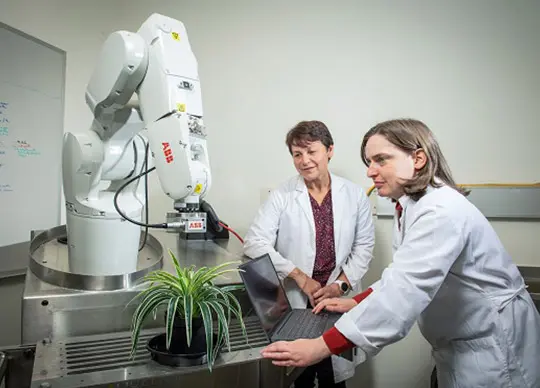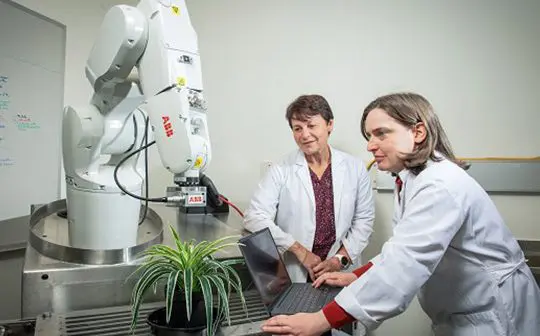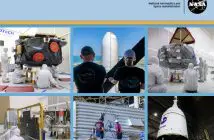
The University of Southern Queensland’s Centre for Agricultural Engineering is investigating ways to grow plants in space.
They will join UK-based vertical farming research and design company, Vertical Future, to develop a Controlled Environment Agriculture (CEA) facility to be used in future space exploration mission funded by the UK Space Agency.
Vertical Future will work in partnership with international experts in both plant biology and space technology including Axiom Space, Saber Astronautics, the University of Southern Queensland, along with their Plants for Space (P4S) research partners at the University of Adelaide and the University of Cambridge.
The project will research the design requirements for a fully autonomous agriculture system that can be monitored and operated remotely or with artificial intelligence, which will be used to support future space explorations, including NASA’s future Moon-to-Mars Artemis missions.
It will also test data transfer requirements between the Vertical Future facilities installed at the company’s R&D site in London and at the University’s Waite Research Institute.
Professor Bernadette McCabe and Dr Cheryl McCarthy from the University of Southern Queensland will head to NASA’s Kennedy Space Centre and take part in a workshop where the project team can research and develop the specifications for a CEA facility that is able to cope with the constraints and challenges found in deep space, designed for the International Space Station (ISS) and Axiom Station.
Centre for Agricultural Engineering Director Professor Bernadette McCabe said this was an opportunity for the University to extend it work in this agri-space sector as part of the international consortium.
“We will be involved in foundational discussions for the development of a space-ready ‘Fully Autonomous Controlled Environment’ during our workshop at the Kennedy Space Centre,” Professor McCabe said.
“Our collaboration brings specialist knowledge in automated real-time machine vision sensing of natural objects and plants, including subtle, non-obvious or non-visual features, and robotic systems for plant care including adaptive irrigation and nutrients”
Vertical Future Chief Scientific Officer, Dr Jennifer Bromley, also highlighted that investment in research and development for space-exploration technologies would benefit people on Earth.
“While this project may sound like the plotline of The Martian, it is important to develop new and innovative ways for astronauts to survive and thrive in their ventures to not just the Moon but also Mars and beyond,” Dr Bromley said.
“As we have seen with many other technological advances thanks to the space industry, we will also be able to apply our findings here on Earth, where we continue to develop Vertical Future technologies.”
UK Space Agency Chief Executive, Dr Paul Bate, said the ambition of the project was made possible by its international scope.
“Projects like this, which will see Vertical Future work with the University of Cambridge and partners in Australia and the US to develop the use of autonomous agriculture technology for space exploration, highlight the many ways in which we can collaborate with the global space community to help humanity push the boundaries of space innovation,” Dr Bate said.





